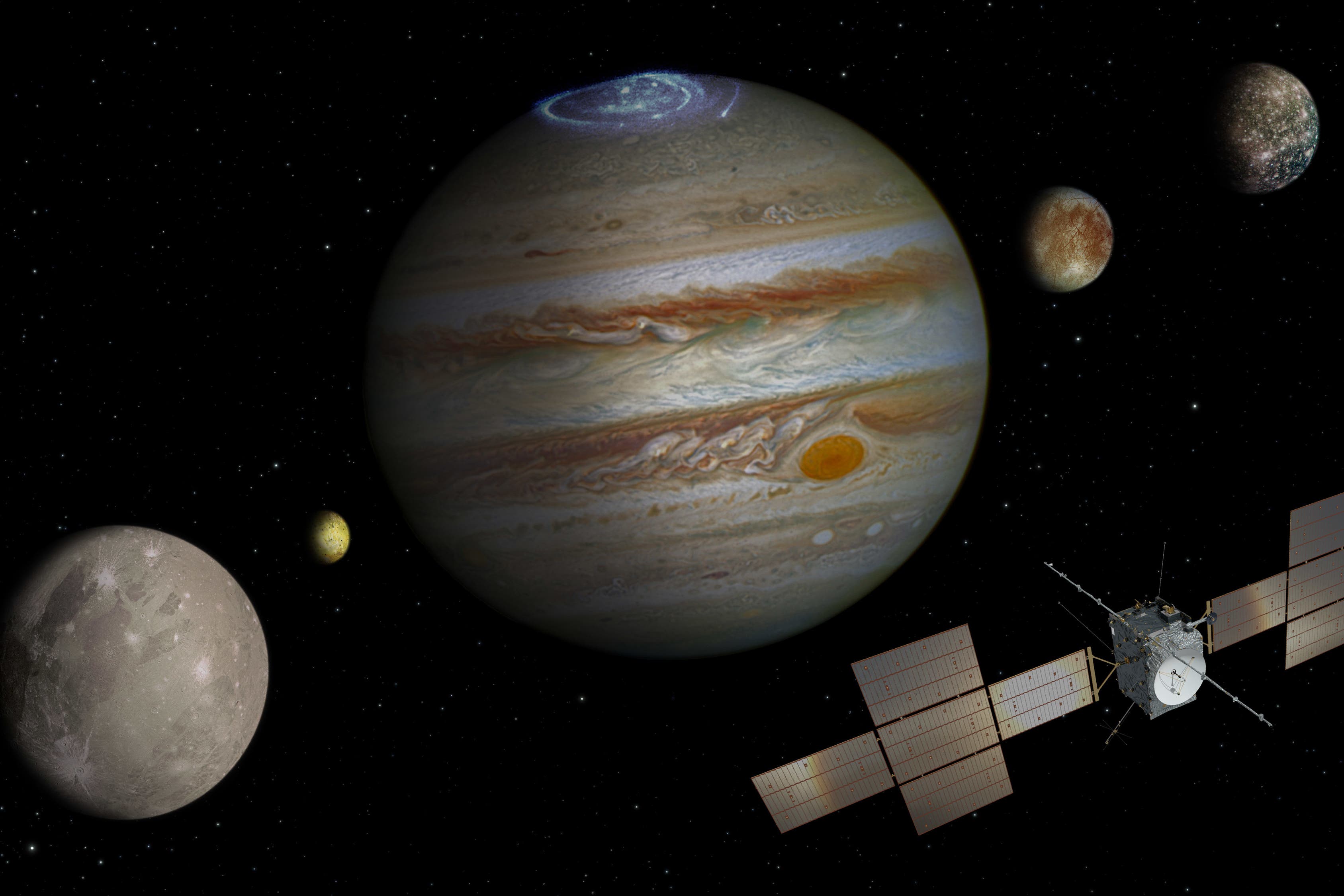Juice spacecraft to pass over Earth in ‘world first’ fly-by
The mission aims to investigate whether Jupiter’s three moons – Callisto, Europa and Ganymede – can support life in its oceans.

The European Space Agency’s Juice craft will return to Earth on Monday night, taking part in a “world first” fly-by.
Flight controllers from Esa will guide the Jupiter Icy Moons Explorer (Juice), with UK instruments on board, past the Moon and then Earth.
The risky manoeuvre will take Juice on a shortcut to Jupiter via Venus, using the Moon’s gravity, and then Earth’s, as a natural brake – slowing itself down and then sling-shotting on to the next phase of its journey.
The mission launched in April 2023 on a 4.1 billion-mile journey which will take more than eight years.
Onboard are 10 scientific instruments, which will investigate whether the gas giant’s three moons – Callisto, Europa and Ganymede – can support life in its oceans.
On Monday from around 11.57pm into the early hours of Tuesday, Esa says a double world first will take place with the lunar-Earth fly-by and the double gravity assist manoeuvre.
The move will change Juice’s speed and direction to alter its course through space.
However, the slightest mistake could take the spacecraft off course and mean the end of the mission.
Dr Caroline Harper, head of space science at the UK Space Agency, said: “This is a world first: a double fly-by of the Moon and Earth has never been done before.
“It’s a tricky manoeuvre, requiring incredibly precise navigation by the Esa flight controllers in real time, and even a tiny mistake could knock Juice off course. But it will be worth it.
“The spacecraft will use the Moon’s gravity, and then Earth’s, as a natural brake – slowing itself down and then sling-shotting towards the next stop on its planetary tour.
“This saves a huge amount of fuel, which means that when Juice arrives at its destination it can do a lot more science.
“The UK Space Agency has invested £9 million in the science instruments on board, so we will be watching closely and wishing Juice all the best for the next leg of its journey to Jupiter.”
Earth will bend Juice’s trajectory through space, redirecting it on course for a fly-by of Venus in August 2025.
From then on, the energy boosts will begin, with the spacecraft being sped up by Venus and then twice by Earth – the space exploration equivalent of drinking three back-to-back espressos.
The risky manoeuvres are needed because Jupiter is on average 800 million kilometres from Earth.
Without an enormous rocket, sending Juice straight to the gas giant would require an impossible 60,000kg of onboard propellant.
It would also need to carry a huge amount of additional propellant to slow itself down enough to go into orbit around Jupiter once it arrives, rather than simply zipping straight past and off into outer space.
The complex and constantly evolving route has been carefully planned out by the mission analysis team over the last 20 years.
Some keen stargazers may be able to spot Juice pass overhead, with the spacecraft flying directly over south-east Asia and the Pacific Ocean.
Powerful binoculars or a telescope will give them the best chance of seeing the spacecraft.
Two cameras on board Juice will be taking photos throughout the lunar-Earth flyby, which will be shared publicly as they are received on Earth.